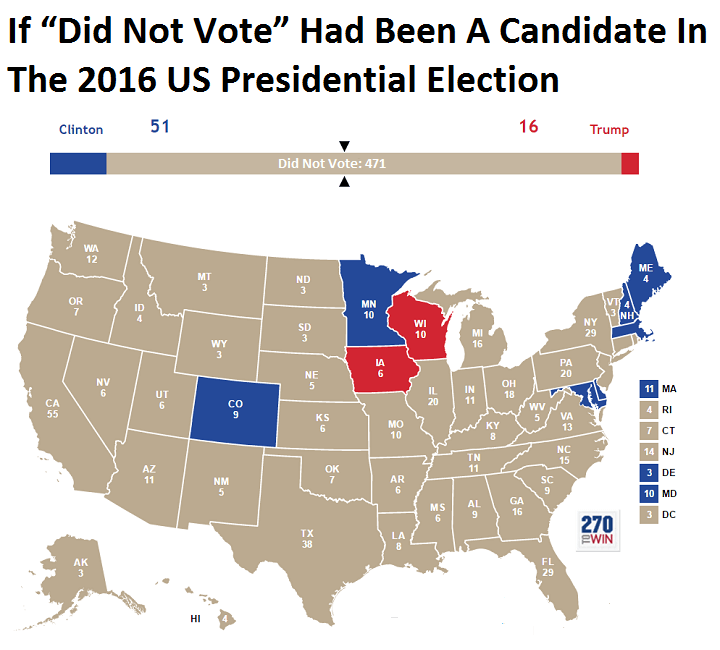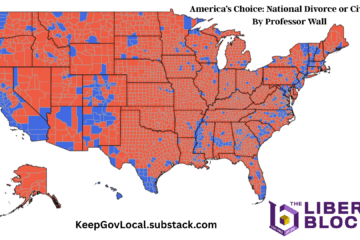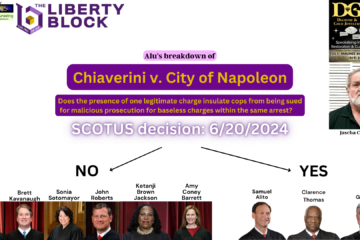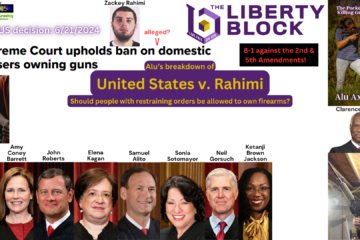“Donald Trump has won the 2016 presidential election! He has a mandate from the people that he can rule the US the way he wants to!”
We heard that plenty of times after the 2016 election and we still do hear it to this very day. It is true, right? The people have spoken. They have rejected Clinton and chosen Trump as the next US president. Therefore, he has a mandate from the majority of Americans that he can lead us.
Borrowing from a critically important voting method utilized most by the Libertarian Party, let’s take a look at the US Presidential Election of 2016 between Trump, Clinton, and registered voters who chose not to vote (meaning that they essentially voted for ‘none of the above’, or NOTA).
As you can see from the graphic, NOTA trounced both Clinton and Trump in nearly every single state. NOTA’s 103 million votes far surpassed the 65 million votes Clinton received and the 62 million votes Trump received. In terms of the electoral college, this would have translated to a presidential win for NOTA with 471 electoral votes. If the US elections worked the same way as the Libertarian Party’s internal elections, the rules would call for a new round of nominations and voting – and both candidates would not be eligible. That is what happens when you can’t even beat NOTA and you can’t get a simple majority. The US does not work like that, though.

Governor Christie of New Jersey, one of the candidates that Trump beat in the Republican primary knows quite well how few votes are required to win elections. In 2013, he won his primary with less than 4% of registered voters supporting him – and there was only one primary opponent. In the general election, he barely eeked out a win because ‘the Democrat was even worse’. Everyone who voted for Christie may have hated him but considered him to be less terrible than his opponent in both the primary and the general elections. Regardless of how few people actually supported him – and very few did support him – he won reelection and continued to be one of the most hated governors by his constituents.
There are many more examples of politicians winning elections and declaring themselves the rightful masters of their people despite shockingly few people actually supporting them. If politicians were confident that they could win affirmative approval from real people, they would support voting methods such as approval voting, ranked-choice voting, range voting, or another one of the much more fair systems.
The US is currently run by a government that resembles something between mob rule and a socialist oligarchy. This could be improved immensely by adopting a range voting system for all elections, from local, to state, to the presidency.
Of course, the only moral societal structure is one based on consent in all matters, not just intercourse. Currently, certain people can steal, make laws, control others, kill people, and do nearly anything they desire as long as they have won an ‘election’ (which we have now proven are terribly immoral and ridiculous) or as long as they are theoretically acting on behalf of elected officials or their appointees. Ultimately, the solution must come in the form of enough people in the US standing up and rejecting kings, queens, dictators, and all other authoritarian rulers who violate consent. The 2016 election was an optimistic sign that maybe most Americans reject authoritarian government – but does it matter what we want?


